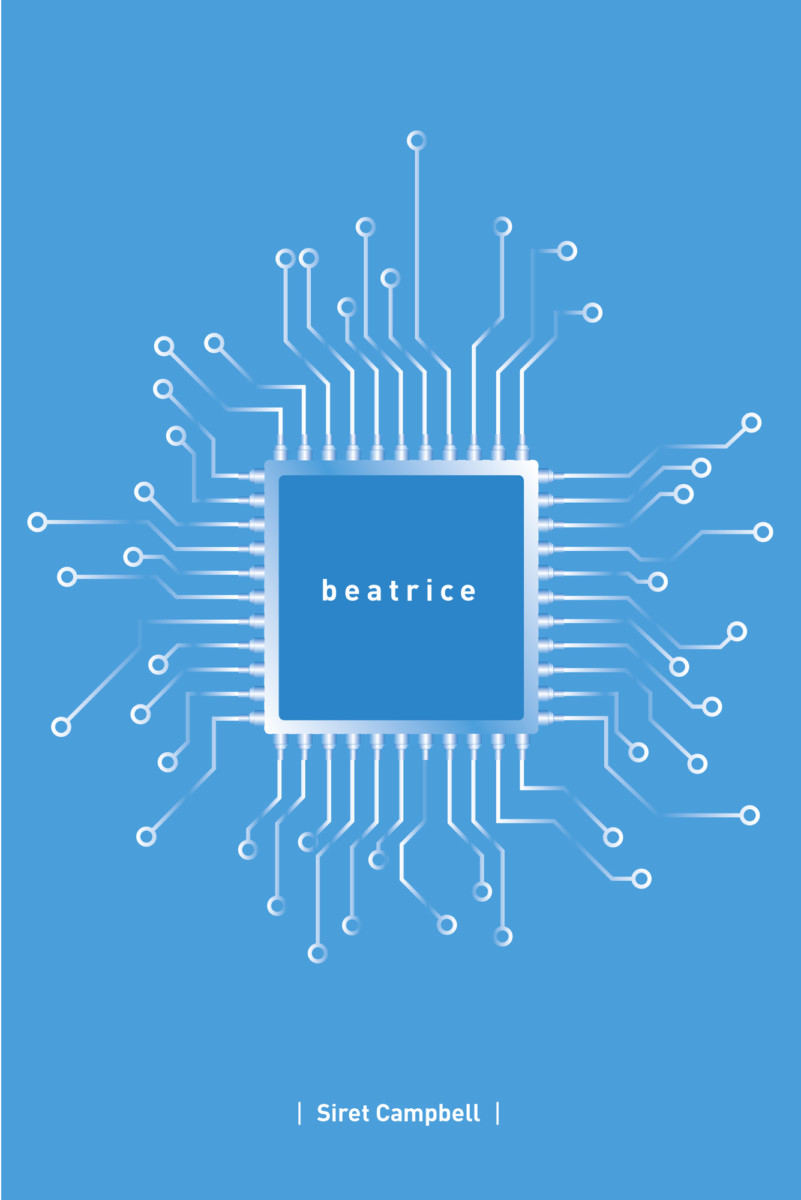Siret Campbell, Beatrice
Siret Campbell, 2018. 60 pp
ISBN 9789949880256
(also available in English: ISBN: 9789949886517)
Near-future sci-fi is a disquieting genre: it depicts a world we do not yet know, but which doesn’t seem impossible in the least if we observe the reality around us and apply a little bit of fantasy to current trends. Siret Campbell’s play Beatrice, which won the latest Cultural Endowment of Estonia’s Award for Drama, is like a domestic shard of Black Mirror, grimly questioning whether the technological developments that make our lives ever simpler are actually in accord with man’s deepest nature.
At the focus of the play is a young man named Tom, who in chats over coffee would come off more as a cyber-sceptic and a defender of natural means. Yet when the fundamental natural structure he has built his life around collapses (his wife, the mother of his newborn son, is killed), the only way he sees out of the situation is to simulate naturalness. He has his late wife’s recorded consciousness “implanted” in a donor body, and Beatrice is born.
Through Beatrice’s character and several other elements, the play alludes to the last part of Dante’s Divine Comedy: his journey through Paradise and the afterlife where Beatrice is his guide. Dante has only seen Beatrice twice in his mortal days, though she represented his divine ideal woman throughout his life. The backwardness of this situation lies in the fact that Tom’s ideal woman was his actual wife who bore him a child; still, after reviving her consciousness in Beatrice’s body, he is yet unable to return to that paradise. Tom’s Beatrice becomes a kind of guide in her postmortem life, similarly representing paradise lost: the real individual who had been in Tom’s life.
The cycle of problems in Beatrice revolves around copying and pasting, though much more deeply than the words themselves would have one expect. Electronic data storage promises to preserve that, which is tragically temporal in nature – or so it seems at first. Yet with the help of his own mother, Tom comes to realize that a natural means of data storage also exists: his wife lives on in their child, and ultimately, he must acknowledge the fact that humans lack the mental readiness to accept all of technology’s wonders. Beatrice is a sensitive, tightly-assembled cyber-drama, and is one of the few plays to have garnered so much interest as an independent literary work in recent years. Justifiably so.
Maarja Helena Meriste (b. 1992) is a literary critic, editor, and is pursuing a master’s in literature at the University of Tartu. In 2017, Meriste received the youth literary magazine Värske Rõhk’s annual award for literary review.

